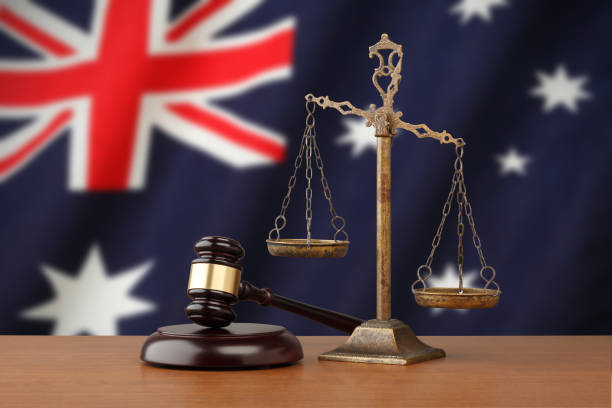

If you’ve ever walked into your home and caught a strange whiff of something that smells like rotten eggs, don’t brush it off.
That awful smell isn’t just unpleasant. It could be a sign of a gas leak. And acting quickly could save your life.
Most people ask, “What does gas smell like?”
The surprising truth is, natural gas doesn’t smell like anything. However, gas companies add a chemical called mercaptan to help people detect leaks. That chemical smells like sulphur or rotten eggs. It’s an intentional warning sign.
This guide covers how to identify a gas leak, what to do during an emergency, who to call in different situations, and what steps you can take to prevent gas-related incidents in your home.
You’ll also learn the legal responsibilities of homeowners, landlords, and tenants, and how a licensed gas fitter in Melbourne or a professional gas plumber plays a critical role in keeping your home safe.
Gas leaks are often silent and deadly. But with the right awareness, you can catch the warning signs early and prevent serious harm. The most important tool? Your own senses.
Let’s go back to the basics: what does natural gas smell like? On its own, absolutely nothing. That’s why utility companies add mercaptan, a harmless but extremely pungent chemical that smells like rotten eggs.
So if you’ve ever caught a sudden sulfuric scent indoors, especially near your gas heater, stove, or water system. Don’t just open a window and move on. Ask yourself: Could this be a gas leak?

If your sense of smell is blocked, maybe from a cold or allergies, or if you’re in a poorly ventilated space, you might not catch it at all.
That’s why it’s critical to have functioning carbon monoxide detectors, especially since carbon monoxide is both odourless and deadly.
Inside your home, the smell is often more intense. It will likely feel overpowering if the leak is significant. But even a faint whiff that lingers or returns could be a warning. People often describe it as musty, burnt, metallic, or chemical-like when it mixes with other indoor odours.
If you’re outside, the smell might not hit you as strongly due to the airflow. If you’re near a gas meter, pipe, or underground line and suddenly wonder, that same eggy smell is still the red flag.
Even if you can’t smell anything, there are other ways to detect a gas leak:
Pro Tip: If you notice any two signs at once, like a smell and a hissing noise, assume it’s a leak and take action immediately.
Now that you know what to look for, here’s what you should do if you think there’s a leak. Even if you’re not totally sure, it’s better to overreact than take a chance.
Also Read: How to Get Rid of Gasoline Smell from Your House
Different situations call for different responses. Here’s who to call based on what’s happening:
Important: Never ignore a suspected leak. Even a small odour can be the start of something serious.
While responding quickly is important, prevention is always the best approach. Here’s how to keep your home safe from gas-related dangers:
Even short-term exposure to leaking gas can cause health issues:
These symptoms can be easy to overlook, especially in winter when doors and windows stay closed. But if multiple people feel them at the same time indoors, it’s a red flag.

Long-term exposure is even more dangerous. Inhaling gas or carbon monoxide over time can lead to permanent lung or brain damage, and in severe cases, death. This is why it’s so important to catch leaks early and take symptoms seriously.
Gas safety is regulated, and different parties have clear responsibilities:
Gas installations must follow AS/NZS 5601.1:2022, which is the current Australian standard. It outlines safety requirements for installation, ventilation, appliance servicing, and leak testing.

It is illegal for unlicensed individuals to perform gas work. This includes small jobs like replacing a flexible hose or adjusting a fitting. You must call a licensed professional gas plumber to ensure the work is legal and safe.
So, let’s come back to the question: what does gas smell like? It smells like an eggy, sulfuric odour. And that is your first line of defence.
If you smell it, either inside or outside, don’t ignore it. Don’t wait to “see if it goes away.”
Open the windows, get outside, and make the call. There’s no such thing as being too cautious with gas.
Need help? Regular checks can stop problems before they start. Call
Areas


Fill the form below and we’ll get back ASAP!

MGP! Thank you for help, honest pricing and high quality work. Thank you to Joe for pricing and the boys involved for replacing my hot water tank and fixing my gas leak for a reasonable price. 5 star response, 5 star service and 5 star price.
Joe was great. Very professional and quick. Gas hot water heater needed replacing, he was honest and upfront about what our options were. System was sourced and replaced within a couple of hours.
Fantastic service very responsive Joe is highly recommended and works very clean and neat..... good job well done....very happy... will use again and again

At Melbourne Gas Plumber, we're here to handle all your gas plumbing needs throughout Melbourne. With over 40 years of experience, we bring extensive local knowledge and expertise to every job.
QUICK LINKS
OPENING HOURS
Open 24/7
